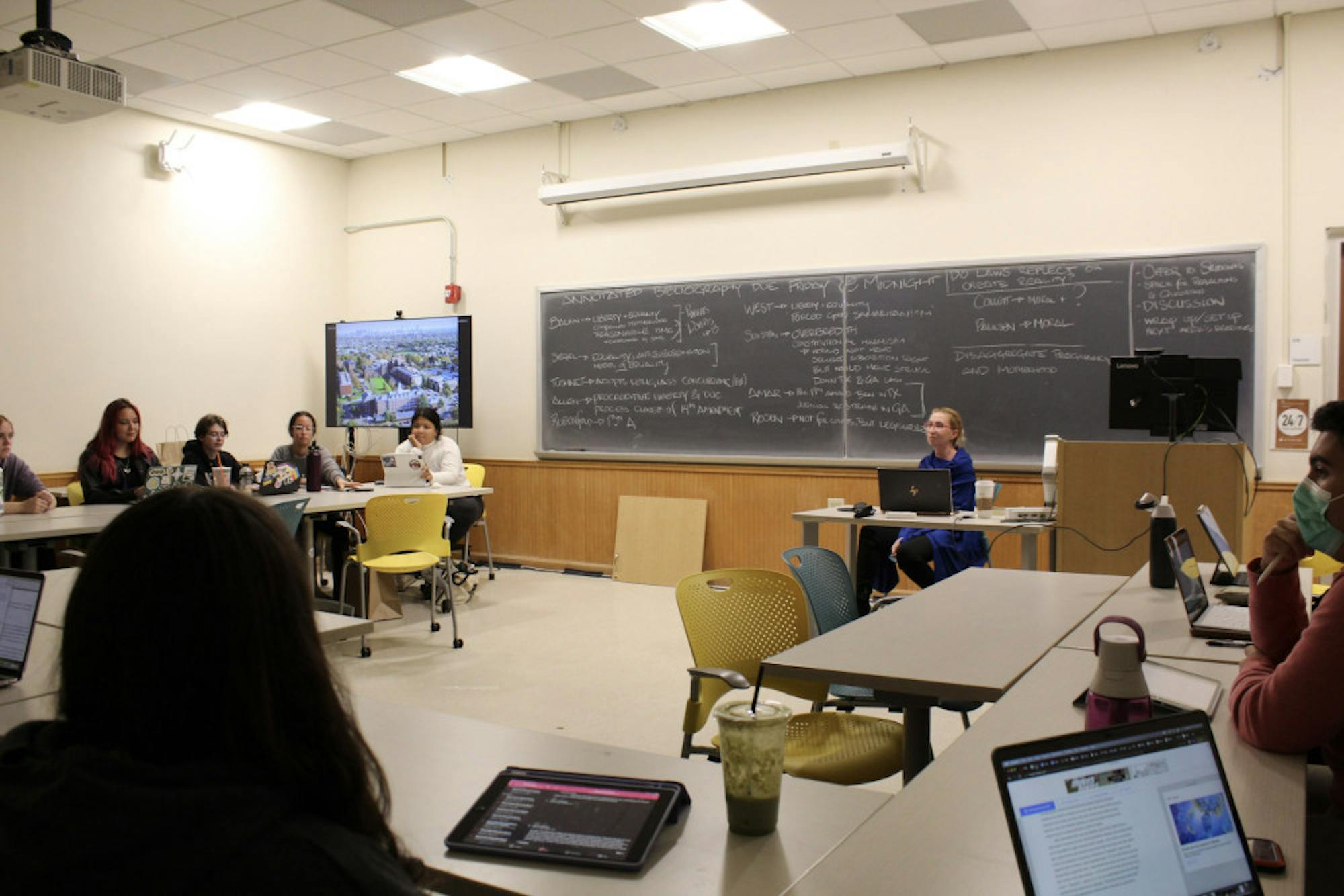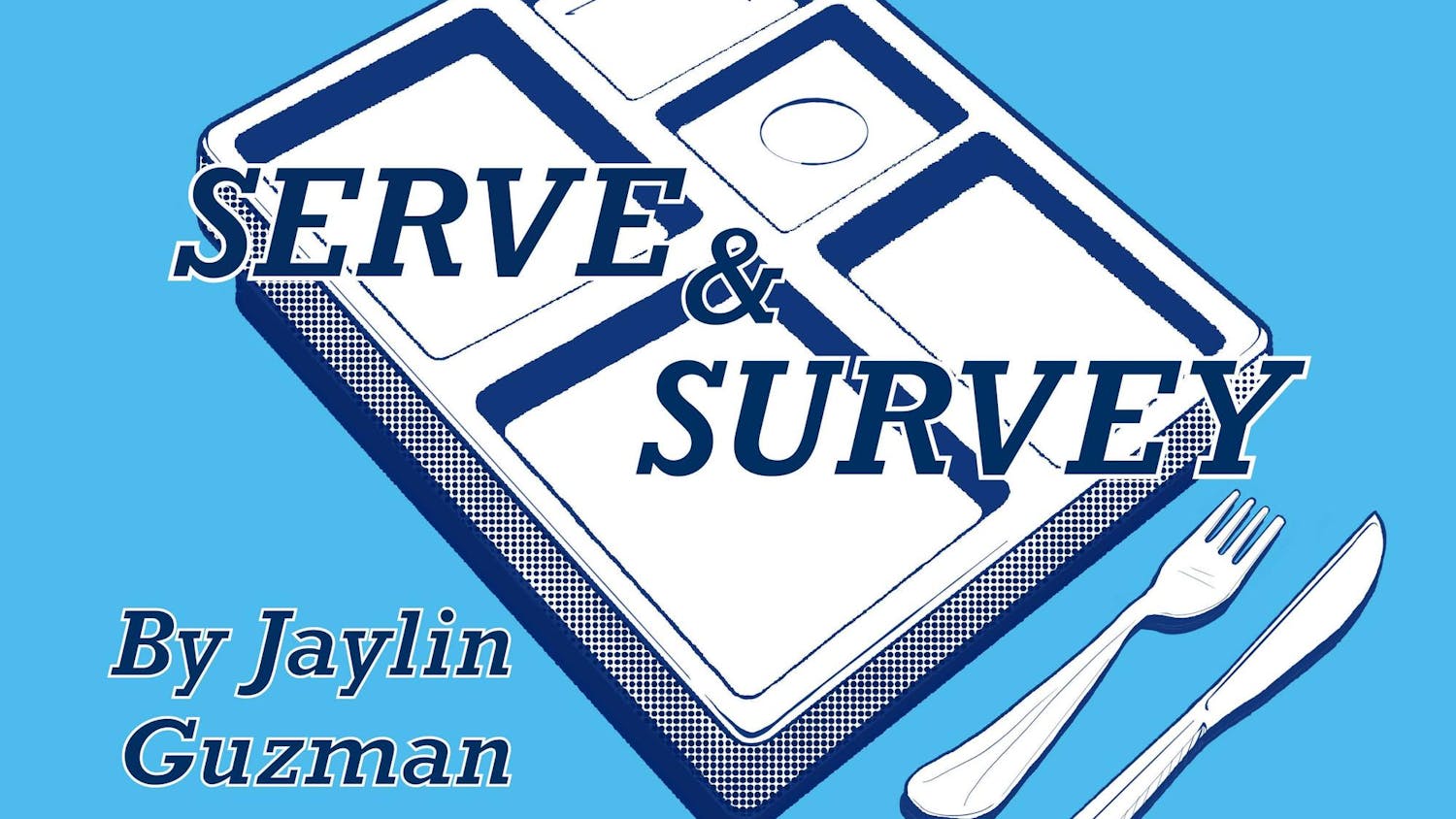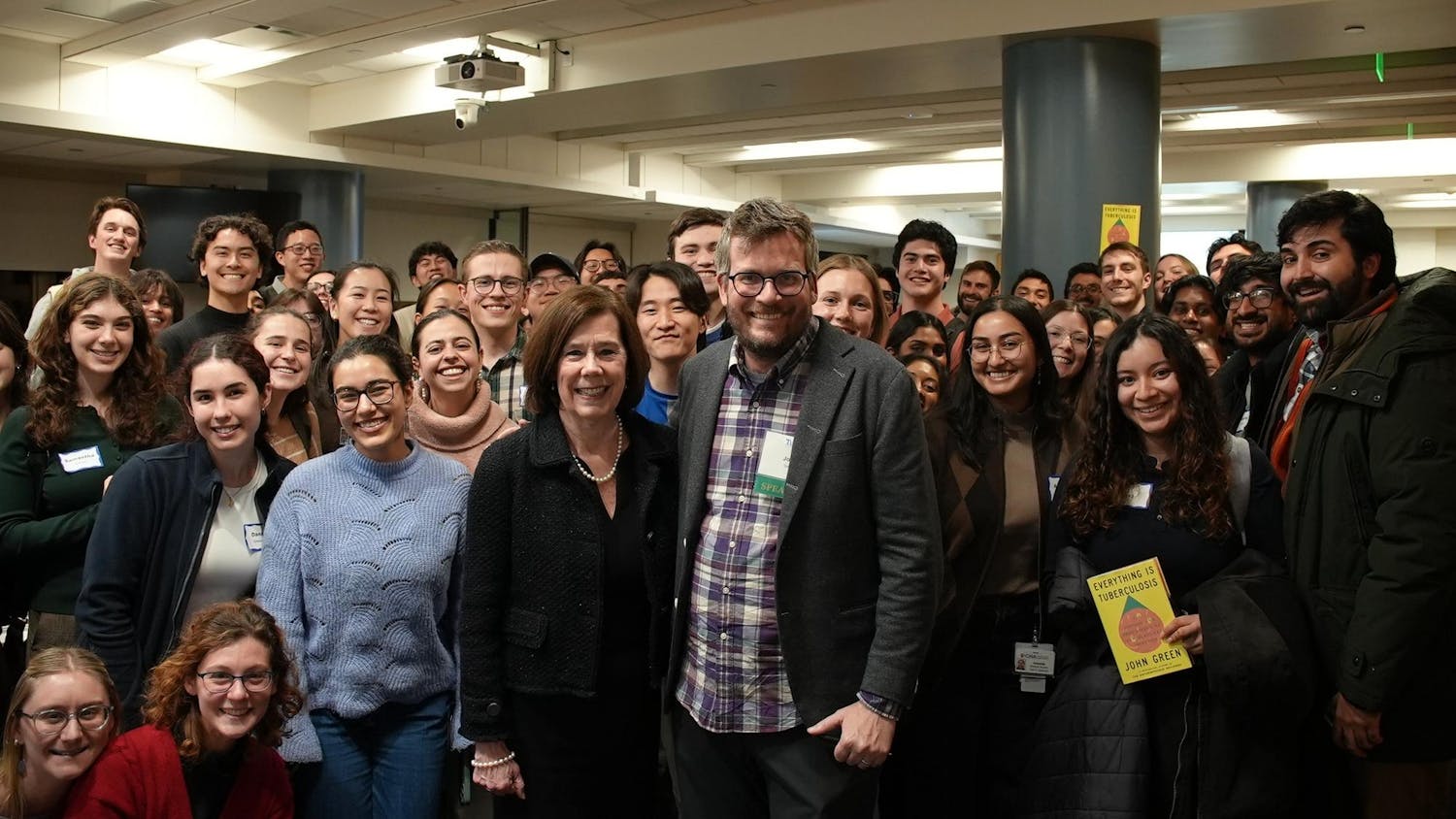This fall, Tufts’ Experimental College added a new course, The Right to Abortion, which dives into the history of abortion in the United States. Taught by reproductive rights activist Sarah Lee Day, the class aims to explore American society before and after the Roe v. Wade ruling and the future of reproductive justice in the nation.
This May, the leak of the U.S. Supreme Court draft decision regarding the case of Dobbs v. Jackson Women's Health Organization revealed a possible repeal of the constitutional right to abortion secured by Roe v. Wade; it was around this time that the ExCollege administrators decided to offer a course on the subject.
The ExCollege connected with Day through her employers at Reproductive Equity Now, which advocates for access to safe and legal reproductive health care. After volunteering to teach the course, Day started to form its outline in collaboration with Amy Goldstein and Howard Woolf, the associate director and director of the ExCollege.
“Between talking with Amy and meeting with Howard, I had already developed a rough syllabus for the class and was just incredibly grateful to have the opportunity to teach a course like this and to dive into it,” Day told the Daily.
The resulting course covers a wide variety of content, including the history of abortion, the women’s movement, legal and medical perspectives on abortion and the implications of Roe’s reversal on other protected rights.
The planned curriculum shifted slightly when Roe v. Wade was overturned in June. Now, students will read Justice Clarence Thomas’ concurrence from the Dobbs case and other articles about crisis pregnancy centers and the broader impacts of abortion loss on medical care.
Day explained the context behind the changes in reading materials in light of the Dobbs decision.
“I [will] have the students reread the … Thomas concurrence from Dobbs … because in Thomas' concurrence, he basically says that the court should reevaluate all of their substantive due process law because anything predicated on the right to privacy is suspect,” Day said.
The teaching philosophies used in the course development were shaped by Day’s educational and professional history. Day has bachelor's degrees in fine arts and psychology, a master's in social justice and human rights and a law degree. Coming from such a background has motivated Day to pursue a career in advocacy and reproductive justice. This experience has in turn influenced her teaching style.
Day shared that she wants to prepare students for their future classes and academic careers at Tufts and beyond.
“I view my job as really preparing students to feel confident going into grad school. That might have come as kind of a shock to my freshmen, but so far, they have all risen to the challenge,” Day said.
She has structured the classes using weekly themes with a combination of readings, discussions and assignments. Although Day is preparing students for the rigor of further education, her first-year students have simply been enjoying her course as an introduction to the wide variety of classes Tufts offers.
Petra Tannous, a first-year student enrolled in the course, is planning to study political science and has enjoyed the different pedagogical style Day offers in comparison to some of her other lecture-based courses.
“We sit at tables, and they're arranged in a circle,” Tannous said. “Professor Day encourages a lot of discussion. … It's an open space where we all feel comfortable sharing what we think and our opinions related to what we read for homework or what we have discussed.”
The class does not shy away from the controversies surrounding abortion, but rather confronts them head-on. Day started students off with readings from landmark cases, including Roe v. Wade, Dobbs v. Jackson Women's Health Organization, Planned Parenthood v. Danforth and more.
Through the course, Day breaks down the different issues surrounding abortion, both social and political.
“Abortion, it's a form of health care, but it is also a deeply politicized issue,” Day said. “It is an issue that is very wrapped up with judicial proceedings and nominations. It is an issue that is about national identity for some countries such as Poland or Ireland. It is a deeply personal issue, and at the same time, it is a public health issue.”
Day added that the class will also touch on questions of what might come next in a post-Roe world, including what the Dobbs ruling could mean for same-sex marriage, transgender rights and rights to contraceptives.
To this end, Day shared that she brings her students' attention to the different barriers to abortion access and laws that could potentially be enacted in the future.
“Alabama is already using the logic in Roe to say that it can ban gender-affirming care. So we'll talk about the way it relates to trans rights,” Day said. “I make it very clear that [this part of the syllabus] may change because this is still an evolving area of law.”
A key part of the course is the cumulative final project which, according to Day, is an opportunity for students to demonstrate their individual interests. Its goal is not simply to satisfy a curriculum requirement but instead to demonstrate the importance and purpose of this topic in students' lives.
Students may choose to draft their own legislative opinion on the Dobbs case or write a research paper on how abortion regulations affect specific communities, among other options.
Students can also incorporate their personal interests into their final, which is what sophomore Ruby McElhone Yates is doing. McElhone Yates, a political science major, plans on studying the effects of the Hyde Amendment, which restricts the use of federal Medicaid to cover the majority of abortions.
“I am interested in studying the effects of the Hyde Amendment, specifically on [the] IHS, which is the Indian Health Service … Even though the Hyde Amendment isn't in the budget anymore, the effects haven't gone away through the Indian Health Service. … I'm interested in seeing how that specifically affects abortion rights,” McElhone Yates said.
Tannous shared that she has already developed a rough draft for her final project in collaboration with another student in the class. Together, they want to campaign for a new training module to be added to the Tufts’ Office of Equal Opportunity’s current list of mandatory training seminars for students.
“We're going to try to campaign with the OEO to … add to the summer training [on Canvas], just an extra section that explains what reproductive health care Tufts offers, because a lot of people don't know that they have access to a lot of reproductive health care at Tufts,” Tannous said.
Day will return and teach The Right to Abortion again in the spring, according to the ExCollege’s spring 2023 course announcement.
McElhone Yates praised Day.
“She’s a great professor. She's very open to hearing … our thoughts on the readings, [and] also … figuring out how to make the class more doable and approachable,” McElhone Yates said.
Tannous found value in having an instructor with field experience.
“It's just really cool that we have the opportunity here at Tufts to take a class taught by someone in the field who has a lot of experience and is sharing the experience with us,” she said.






